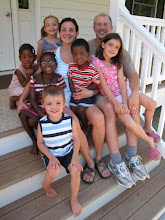Paul’s Thoughts on Chapter Two: Both/And or Either/Or?
There was a time—more than 100 years ago—when the church in America was a Both/And church. Most American Christians already knew what the author in this chapter is advocating: that the gospel of Jesus Christ is a message of both personal salvation (John 3:16) and corporate change (Luke 4:16-21), that God’s kingdom is concerned with both the spiritual (Matthew 5:3,6) and the physical (Luke 6:20-21), and that we are called both to evangelism (Matthew 28:18-20) and to deeds of justice (Matthew 25:31-46). For example, consider those Both/And Christians who led the fight for the abolition of slavery.
Then, about 100 years ago, two movements emerged that began to change all that. On the one hand there was the Fundamentalist Movement—church leaders who were committed to the “fundamentals” of the Christian faith. They published pamphlets emphasizing five such fundamentals (biblical inerrancy, the virgin birth, Christ’s miracles, his substitutionary atonement, and the bodily resurrection), and they stood in opposition to those seminaries and divinity schools where these truths were starting to be denied.
On the other hand there was the Social Gospel Movement—church leaders who were beginning to realize that people, when they come together in groups, often oppress the poor, discriminate against minorities, pollute the environment, and commit all sorts of evils that they would likely not commit as individuals. They gave this a name—social sin (as opposed to personal sin)—and they argued that the remedy for social sin is Jesus’ social message of freedom from oppression for the poor and marginalized.
Looking back, these two movements did not have to oppose one another. But they did. Big time. For fundamentalists, the social gospel came to be viewed as heresy (and, depending on who you ask, it still is). For social gospel advocates, “fundamentalism” became a dirty word (and again, depending on who you ask, it still is). More importantly, both sides denied what the other side affirmed. Social gospel advocates tended to deny the personal, spiritual and future aspects of God’s kingdom, while fundamentalists tended to deny the corporate, physical, here and now aspects of God’s kingdom. Neither seemed to notice that the kingdom could be (and is!) personal and corporate, spiritual and physical, already and not yet. Unfortunately, this false choice is one that we still live with today (with most evangelicals following the fundamentalists, and most “mainline” churches following the social gospel). In the words of our author, the church in American has become an Either/Or church.
However, another major change began to take place in the 1960s, when certain evangelical leaders (many of them African Americans strongly influenced by MLK) started calling the church back to Both/And ministry. Probably the most important among them was John Perkins, a sharecropper’s son who grew up in Mississippi amidst dire poverty. When he was 17 his older brother was murdered by local law enforcement, and he fled Mississippi vowing never to return. But after converting to Christianity in 1960 he did return to Mississippi with a passion to share the gospel. His outspoken nature and leadership in the Civil Rights Movement resulted in repeated harassment, beatings and imprisonment. Nevertheless, his ministry thrived, and today he is an international speaker and teacher on racial reconciliation, leadership and community development (see http://www.jmpf.org). I’ll conclude these thoughts with words from Perkins’ book Beyond Charity—words that form the basis for much of what we’re going to read in Deep Justice:
It is time for the church, yes, the whole church, to take a whole gospel on a whole mission to the whole world. It is time for us to exhibit by our very lives that we believe in the oneness of the Body of Christ. It is time for us to prove that the purpose of the gospel is to reconcile alienated people to God and to each other, across racial, cultural, social and economic barriers. It is time for the reconciling love of God that has touched each individual heart to spill over into love for our neighbor (Beyond Charity,
p. 18).
Sunday, February 22, 2009
Subscribe to:
Post Comments (Atom)

No comments:
Post a Comment